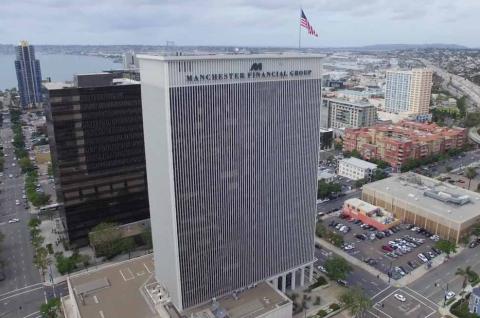By Arturo Castañares
Editor-at-Large

Mayor Kevin Faulconer made the decision in 2016 to waste at least $16 million more on the 101 Ash St. deal in an effort to shield himself from political criticism over “Papa” Doug Manchester, one of the owners of the 101 Ash St. building, and everyone else went along with the taxpayer boondoggle by agreeing to disguise the purchase of the building as a lease.
Faulconer made the decision in a meeting in his office with top city staffers to pursue a lease-to-own deal instead of a direct purchase so that the windfall profits were not paid directly from the City to Doug Manchester in an effort to diminish the political fallout of enriching one of the Mayor’s biggest political contributors and antagonist among Democrats and the gay community.
[Faulconer declined to comment to La Prensa San Diego on the details of the meeting after a description of the allegations; instead issued a statement that says he “called for an independent review of the Ash St project and the preliminary results have already been made public” and that “has directed investigators to address all of the outstanding questions about this project – from the public and the media – to provide a definitive account of what happened.”]
Acquiring the building was a top priority for the Municipal Employees Union (MEA) and the City Firefighters Union #145 in an effort to relocate city employees from the crumbling City Operations Building (COB) to more safe and modern facilities and the 101 Ash building seemed to fit the bill.
Senior city staff at the time believed the best decision for the City would have been to pursue a direct purchase of the building from its then-owners, Sandor “Sandy” Shapery, and his partner Doug Manchester, who had recently bought a 49% equity interest in the former Sempra Energy headquarters for $20 million. His Manchester Financial Group temporarily occupied two floors and branded the top of the building with the company’s name.

A top senior staffer argued in a meeting in the Mayor’s office on September 6, 2016, that a direct purchase would save taxpayers more than $16 million by using municipal bonds that pay a lower interest rate than the costs of the financing through the lease, but Mayor Faulconer pushed for the lease so that a middleman company, Cisterra Development, would be the seller paid by the City, and Cisterra, in turn, would pay Shapery and Manchester, according to people in the meeting. Everyone was instructed to avoid using Manchester’s name in discussing the agreement to purchase the building.
The lease-to-own agreement raised the overall cost of acquiring the building because of higher corporate interest rates Cisterra locked into the deal when compared to municipal bonds the City could have used to finance the purchase. Using muni bonds also would have allowed the City to refinance them in 10 years if rates had dropped; instead, the lease deal locked the City into fixed costs for 20 years.
Faulconer told a senior staffer in the meeting that it would be politically damaging for him to be seen as allowing the City to pay millions of dollars to Doug Manchester, one of his biggest donors. A staff member reportedly argued back but was eventually overruled by the Mayor and instructed to pursue only the lease deal to protect him from political criticism.
A publicly released calendar lists the attendees of the meeting with the Mayor as his Chief of Staff, the City’s Chief Operating Officer (COO), the Chief Financial Officer, the Assistant COO, a Deputy COO, the Director of Real Estate Assets Department, and additional mayoral staff.
The Mayor instructed staff to argue publicly that the Purchase and Sale Agreement (PSA) between Shapery and Manchester with Cisterra was not clear on whether it could be assigned to allow the City to buy the building directly. Staff was instructed to use that argument to push away from a purchase and toward the politically-preferable lease-to-buy agreement. The agreement was rushed through the Council process to approve it before Cisterra was scheduled to close escrow.
Just a week before that meeting, an email from Deputy Chief Operating Officer Ron Villa to other key staffers informed them that “based on the recent appraisal that came in for the building it is our belief that we will not be able to achieve approval for a purchase at the $72 million price.”
La Prensa San Diego and others news outlets have previously reported that the lower appraisal price was the reason for the shift to the lease that was described in an email from Villa on September 7, 2016 (the day after the meeting with the Mayor) where Villa told staff that ”the City will no longer be pursuing a direct purchase and instead will be entering into a lease-to-own similar to [Civic Center Plaza]”, the other deal Cisterra had negotiated for the City earlier in 2015.
Senior staff maintained that the City could have purchased the building directly using various financing options that all would have saved taxpayers more than executing the lease deal, and that the appraisal was not a factor in making the shift away from a purchase.
Staff also confirmed that Faulconer, his Chief of Staff, and several senior staffers toured 101 Ash in July from top to bottom, including mechanical rooms and furnished floors throughout the building.
The explicit direction given by the Mayor helps explain the shift away from the purchase, the use of the alleged issues with the assignment, and the avoidance of Manchester’s name being said or written in connection with the deal.
Getting It Done
When staff presented the building deal to Councilmembers at the Land Use Committee on September 21, 2016, the agenda listed a lease-to-own option, not a purchase. The request was to support a 20-year, lease-to-own agreement that included paying approximately $545,000 per month for a total of $128 million. [Watch video]
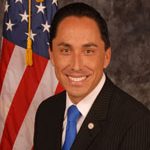
Councilman Todd Gloria, who had opposed Manchester over the developer’s past opposition to gay marriage, championed the lease-to-own deal when it went before the Committee. Gloria spoke very positively of the building and the deal and acknowledged that the lease deal was more expensive than a “straight purchase”.
“This seems to be a very smart financial transaction,” Gloria said during the meeting, “partnering with experts in the community and with folks that know how to get things done, everything about this sends a message to taxpayers that we kind of got our stuff together around here,” Gloria said. “I like a lot of what’s going on here and I just thank you very much.”
Gloria even asked staff how soon after the purchase “can the signage on the building be removed”, referring to Manchester’s name without saying it. When staff responded that the signage could be removed as soon as the lease began on January 1, 2017, Gloria then made the motion to approve the deal.
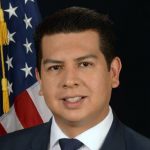
Councilman David Alvarez questioned staff on why a direct purchase wasn’t proposed to save taxpayers millions of dollars, but he was met with the argument about the legal questions regarding the purchase assignment. Although he still seemed skeptical, Alvarez relented when told by three different city staffers that the lease was the best way to proceed.
[Alvarez this week released a statement that “we need a criminal investigation by local, state, or federal prosecutors in order to get to the truth”.]
When the agreement went before the full Council on October 17, 2016, it was Gloria again that spoke first, adding twice that ““for those of us that have been in it, it’s extremely well maintained” before concluding by making the motion to approve the deal. [Watch video]
“I see this as win all the way around…it’s a better business arrangement for the taxpayers…it’s something I want to be a part of today so I’m happy to make that motion,” Gloria said.
[Gloria and his campaign manager, Nick Serrano, have not responded to several offers for comment and an interview from La Prensa San Diego.]
After the City Council voted unanimously to approve the ordinance that authorized the city expenditures to pay for the lease, the measure had to go back before the Council on November 14, 2016 for a final vote. On that day the item was on consent calendar and was passed unanimously.
City rules require that any ordinance passed by the City Council can be challenged by the public within the 30 days after its passage, so no action can be taken to implement the expenditures or actions in the ordinance until that time has passed. The lease-to-own deal could not have been signed before December 15, 2016.
Inking the Deal
During the time between the vote at City Council and the expiration of the 30-day cooling-off period, Mara Elliott was sworn-in on December 12th as the new City Attorney, replacing Jan Goldsmith.

On December 19, City Attorney Elliott’s office executed the lease agreement. The final document shows that Goldsmith’s name was scratched through and Elliott’s name was written in before the signature of Chief Deputy City Attorney Debra Bevier was signed. Elliott has not responded to questions from La Prensa San Diego regarding her role in reviewing the agreement before her office approved it.
[In a letter issued this week by former City Attorney Mike Aguirre, he points out that Bevier was appointed by Jan Goldsmith. Aguirre had terminated Bevier when he was in office. Goldsmith says that Bevier remained there when he handed the office over to Elliott on December 12, 2016. Chief Deputies are authorized to sign on behalf of the City Attorney. No one has alleged that Bevier executed the agreement without Elliott’s authorization.]
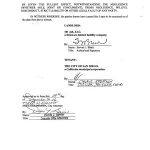
Under the terms of the deal, the City agreed to lease the building for 20 years at a flat-rate of about $18,000 per day, for a total of over $128 million in rents. The City would then own the building after the end of the term. Although it was called a lease-to-buy, the upfront sales price was listed as $72.5 million, plus $5 million for estimated tenant improvements needed before staff could move in.
But in the end, the final purchase price was about $92 million, including profit fees of $4.5 million for Cisterra, and another $10 million in undisclosed fees and costs that were not itemized to the City. [See signed document]
Who Got Paid?

Jason Hughes, a local real estate broker who has been serving as an unpaid Special Assistant for Real Estate Services for the City since 2013, was intimately involved in the negotiations on behalf of the City, but two people close to the deal have suggested that Hughes was also paid undisclosed fees by the sellers. Hughes did not respond to repeated emails, messages, and contacts with his staff to confirm or deny that he received any fees from any of the parties. Hughes did not sign a dual agency waiver that would have allowed him to represent adverse parties in the deal.
Signing the lease before Cisterra closed escrow on its purchase allowed it to use the City’s lease as collateral for its bond financing. Cisterra would not have been able to purchase the building without the City’s executed lease.
Shapery has said publicly that he cut Manchester a $25 million check on the day after the sale closed, yielding Manchester a $5 million profit in about 18 months.
“Papa” Doug Manchester has a long history of hotel and property development in San Diego, including building the Grand Hyatt and Marriott Hotel towers at Seaport Village, the Grand Del Mar golf resort, and the ongoing Navy Broadway Complex along the bayfront, but the 101 Ash St building was the first time in 40 years he and Shapery had partnered on a deal.
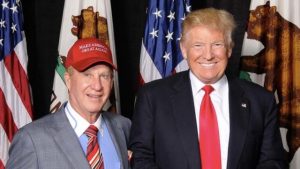
But Manchester also has as long a history as a donor to political candidates, elected officials, and causes, including being one of the largest contributors to Donald Trump, having given more than $450,000 to his 2016 campaign. In 2017, Trump nominated Manchester to be the Ambassador to the Bahamas, but his name was withdrawn when he failed to secure Senate confirmation after having his nomination linger for over 2 years.
Locally, Manchester has been one of Faulconer’s largest donors, as well as to One San Diego, a non-profit that supports community activities championed by Faulconer, and his wife, Katherine, is the group’s “Honorary Chair”. Cisterra also gave $5,000 to One San Diego before the City signed the 20-year lease-to-own deal.
In 2014, when Republicans were looking for a candidate to fill the vacancy left by Bob Filner’s resignation, local Republican leaders met at a La Jolla compound to agree on who to back between Carl DeMaio, who had lost the mayoral election to Filner, and Faulconer, who was then on the City Council. Manchester was at the confab and helped select Faulconer as the consensus candidate.
At the time, Manchester owned the San Diego Union-Tribune and used the paper to attack DeMaio to discourage him from entering the race on his own to challenge Faulconer.
In 2008, Manchester donated $125,000 to support state ballot Proposition 8 that defined marriage as between a man and a woman, drawing outrage and protests from Democrats and the gay community. Prop 8 passed but was later ruled to be unconstitutional.
Manchester also owned the San Diego Union-Tribune from 2011 to 2015.
Todd Gloria is now in the State Assembly and is a candidate for Mayor in the November election.
Kevin Faulconer was elected Mayor in February 2014, was re-elected in 2016, and will be termed out of office in December. He previously served on the City Council from 2006 to 2014.
…to be continued…
